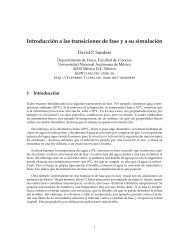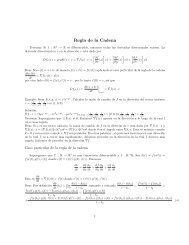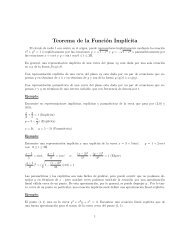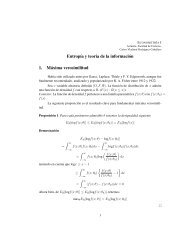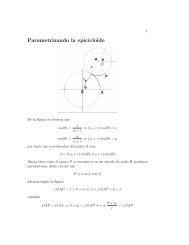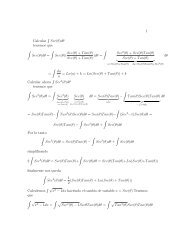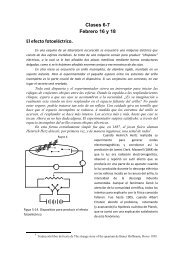"Surely You're Joking, Mr. Feynman!" - unam.
"Surely You're Joking, Mr. Feynman!" - unam.
"Surely You're Joking, Mr. Feynman!" - unam.
You also want an ePaper? Increase the reach of your titles
YUMPU automatically turns print PDFs into web optimized ePapers that Google loves.
"What?"<br />
"That's right," he said confidently; "she's gonna sleep with you. I know that."<br />
"But she isn't even here! She's at her place with the lieu "<br />
"It's all right."<br />
Two o'clock comes around, the bar closes, and Ann hasn't appeared. I ask the<br />
master and his wife if I can come over to their place again. They say sure.<br />
Just as we're coming out of the bar, here comes Ann, running across Route 66<br />
toward me. She puts her arm in mine, and says, "Come on, let's go over to my place."<br />
The master was right. So the lesson was terrific!<br />
When I was back at Cornell in the fall, I was dancing with the sister of a grad<br />
student, who was visiting from Virginia. She was very nice, and suddenly I got this idea:<br />
"Let's go to a bar and have a drink," I said.<br />
On the way to the bar I was working up nerve to try the master's lesson on an<br />
ordinary girl. After all, you don't feel so bad disrespecting a bar girl who's trying to get<br />
you to buy her drinks but a nice, ordinary, Southern girl?<br />
We went into the bar, and before I sat down, I said, "Listen, before I buy you a<br />
drink, I want to know one thing: Will you sleep with me tonight?"<br />
"Yes."<br />
So it worked even with an ordinary girl! But no matter how effective the lesson<br />
was, I never really used it after that. I didn't enjoy doing it that way. But it was interesting<br />
to know that things worked much differently from how I was brought up.<br />
Lucky Numbers<br />
One day at Princeton I was sitting in the lounge and overheard some<br />
mathematicians talking about the series for e x , which is 1 + x + x 2 /2! + x 3 /3! Each term<br />
you get by multiplying the preceding term by x and dividing by the next number. For<br />
example, to get the next term after x 4 /4! you multiply that term by x and divide by 5. It's<br />
very simple.<br />
When I was a kid I was excited by series, and had played with this thing. I had<br />
computed e using that series, and had seen how quickly the new terms became very<br />
small.<br />
I mumbled something about how it was easy to calculate e to any power using<br />
that series (you just substitute the power for x).<br />
"Oh yeah?" they said. "Well, then what's e to the 3.3?" said some joker I think it<br />
was Tukey.<br />
I say, "That's easy. It's 27.11."<br />
Tukey knows it isn't so easy to compute all that in your head. "Hey! How'd you<br />
do that?"<br />
Another guy says, "You know <strong>Feynman</strong>, he's just faking it. It's not really right."<br />
They go to get a table, and while they're doing that, I put on a few more figures:<br />
"27.1126," I say.<br />
They find it in the table. "It's right! But how'd you do it!"<br />
"I just summed the series."<br />
"Nobody can sum the series that fast. You must just happen to know that one.



